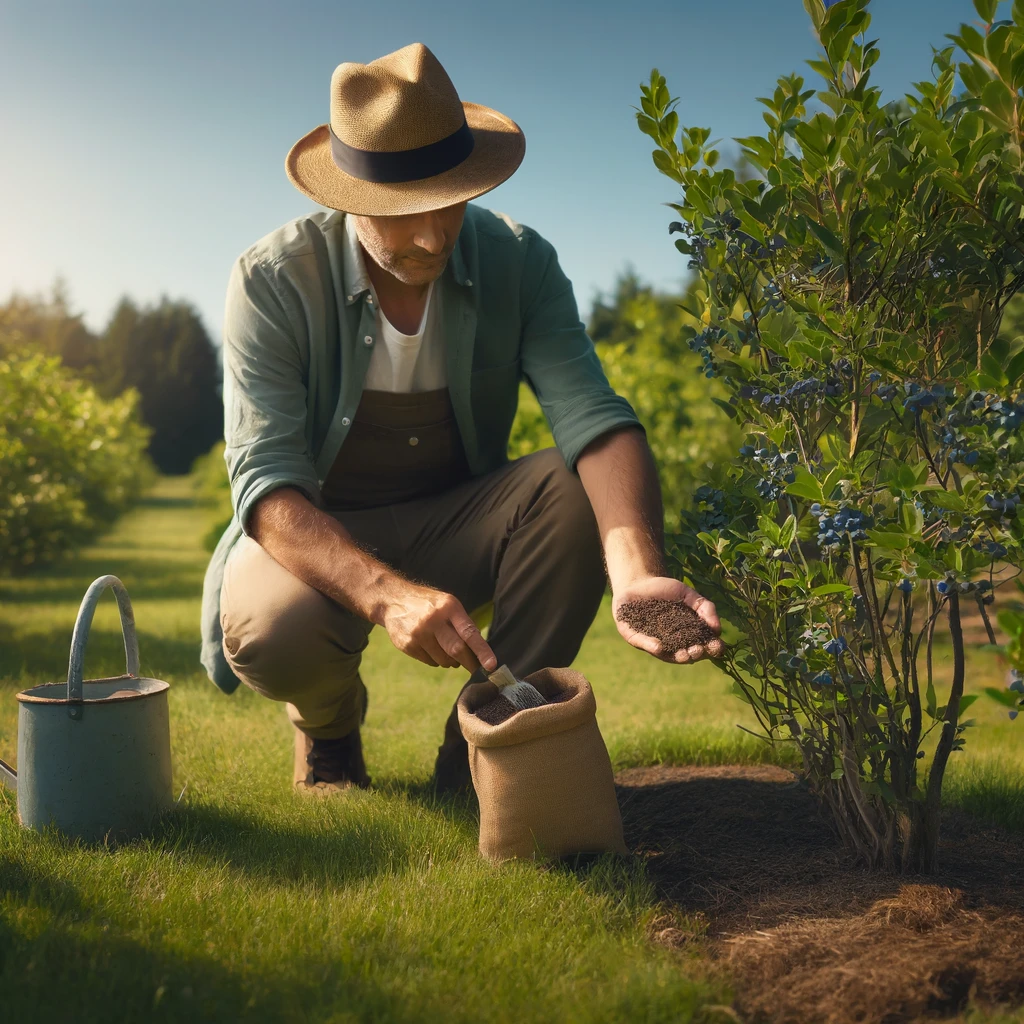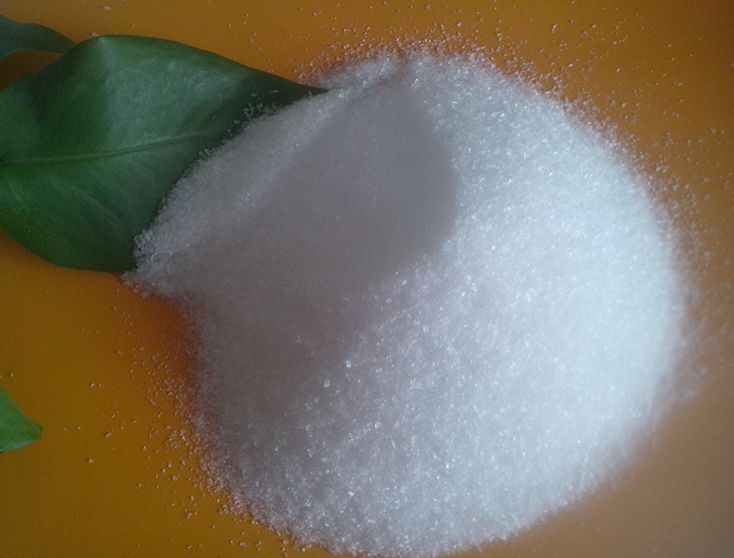Introduction to Organic Fertilization for Blueberries
In order to cultivate beautiful blueberries, you must comprehend the importance of organic fertilizer for blueberries. Before buying fertilizers for your blueberry bushes, it’s important to understand the significance of compost for your plants. fertilizer is about more than helping your plant grow, it’s about creating an ecosystem in your garden that supports the best blueberry bushes around.
With respect to fertilizer, it is imperative to ensure that the right choice is made as the use of the wrong type has long-lasting adverse effects on plants and the environment. Since organic fertilizer is derived from ‘natural’ sources, they release their nutrients slowly over time, synchronise with the natural growth schedule of blueberry plants and improve the structure of the soil. In the words of Dr. Linda Chalker-Scott of Washington State University, ‘Organic fertilizers provide a slow release of nutrients that combines well with the natural growth rate of blueberry bushes, so they’re more resistant to stress diseases.
Secondly, because they supply required nutrients needed by blueberries, they impart organic matter to the soil, improving the soil’s biological activity, water retention, structure and roots development. According to Mark Bennett, professor in the department of Horticulture at The Ohio State University: ‘Using organic fertilizer for blueberries means a tastier fruit because of a higher organic matter profile that will improve the overall health of your plants.’
Understanding Blueberry Nutrition Needs
Blueberry plants are as hungry as they are delicious. For any gardener who wants to ensure a cropping bonus, it’s crucial to know which nutrients make blueberry plants thrive and to understand when and how to provide them. Generally, the major nutrients – nitrogen (N), phosphorus (P), potassium (K) – together with micronutrients – such as magnesium (Mg), calcium (Ca) , and sulfur (S) – are of foremost importance. Blueberries are also characterised by their requirement for low pH conditions, which underlines their preference for more acid soils.
As Dr Emily Hoover, a horticulturist with the University of Minnesota, explains: ‘Blueberries grow better in soils with a very low, or acidic, pH where they can access nutrients more efficiently.’ Organic fertilizers should therefore be selected not only on the basis of their N-P-K ratio, but also ‘for their potential to increase or decrease soil pH to a natural level’.
What matters more is how organic fertilizers satisfy these needs in ways that synthetics aren’t even capable of. Organic fertilizers like composted pine bark and peat moss naturally acidify the soil, and, coupled with low-tillage practices (where minimal soil is ploughed), can help keep pH levels optimised for blueberry plants to maximise their nutrient uptake. They also break down slowly, releasing nutrient stocks over time in a form the blueberry plants can process easily.
‘Organic fertilizers release nutrients at about the same rate as in nature, eliminating the potential for nutrient runoff and ensuring the blueberries receive a balanced diet over the entire season,’ notes Professor Bennett.
Knowing these nutritional basics helps gardeners decide what kind of organic fertilizers will best suit their blueberries, leading to healthy and fruiting plants.

Types of Organic Fertilizers for Blueberries
For blueberry growers, when it comes to fertilising blueberries producing organically, not all organic fertilizers are equal. Depending on which fertilizer you use, it can have a significant impact on the health and growth of your crops. There are two categories of organic fertilizer groups that make up the majority of fertilizers used for blueberries: compost and manure, and liquid fish and seaweed fertilizers.
A second popular supplement to organic gardening is compost and manure, which provide nutrients and also help improve soil structure. High-quality compost derived from decomposed leaves and pine bark is a great organic supplement for blueberries, especially because pine leaves are a natural source of acid that blueberries love. In general, moderation is key when it comes to manure: well-composted poultry manure can be a good additive because it has a higher nitrogen content, especially during blueberry vegetative growth.
‘If using manure as an organic fertilizer, let it compost thoroughly before adding to your garden, so it doesn’t burn your plants and so no pathogens are transmitted,’ says the horticulturist Amy Grotta, a blueberry specialist at Oregon State University.
Liquid fertilizers made from fish and seaweed are an even more direct means of nutrient delivery. These fertilizer products are particularly effective because they deliver a balanced assortment of nutrients that are highly available for plant uptake. And, application methods are simple – they can be diluted with water and sprayed or drip-irrigated into the soil, or they can be used in foliar sprays to deliver a nutrient boost quickly to a plant with a nutrient deficiency. As Hoover notes, ‘Liquid seaweed is high in potassium and growth hormones, and can accelerate fruit-setting and overall plant vigour.’
Providing the right kind of organic fertilizer to blueberries at the right times will give blueberry plants all the nutrients they need to have luxuriant growth, and lots of delicious berries to eat. Compost and manure fertilizers and liquid fish and seaweed fertilizers all have their unique advantage, and using them in their recommended fashions will give blueberries the nutrients to grow and produce.
Monitoring Soil Health and Fertilizer Impact
Only through a thorough knowledge of soil health, and routine monitoring of what’s going on, can appropriate fertilizer inputs be directed through the most efficient greenhouse gas-avoidance route Because the soil microbiome is a dynamic system, it cannot be successfully managed by a farmer once and forgotten. Monitoring the organisms – typically done through the measurement of key microbiological characteristics of the soil, such as biological carbon, nitrogen, and enzymes – is the only way she or he can ensure that the benefits made available through adding greenhouse-gas-neutral organic fertilizer for blueberries are being properly realised, and that the soil environment is continually suitable for growing the plants.
Only through a thorough knowledge of what’s going on, and routine monitoring of soil and plant health, can they be guided successfully through the most resources-efficient route to the market, with the smallest greenhouse gas footprint – year after year.
Testing the soil for quality is of utmost importance in maintaining the health of this perennial crop. Soil testing on a regular basis allows blueberry growers to determine the pH level, which is important because these plants prefer acidic conditions, as well as measures the amount of nitrogen, phosphorus and potassium needed for plant growth. Routine soil tests also reveal if these macronutrients are lacking in the soil, potentially hampering blueberry health.
‘Routine soil testing in the garden enables the careful diagnosis and correction of nutrient deficiencies prior to their manifestation as visible symptoms,’ says Linda Chalker-Scott, associate professor in urban horticulture at Washington State University. She adds: ‘Only through routine soil testing can gardeners avoid the twin ills of fertilizer overuse or underuse, both of which can have adverse effects on plant health and fruit quality.
Another is to adjust your fertilizer inputs based on the outcome of the soil test. For instance, if your test reveals nitrogen deficiency, you could increase organic matter through compost or use a fish emulsion. On the other hand, if your soil is too alkaline, you could lower its pH to within the blueberry plant’s needs using sulfur or iron sulfate.
With regular soil health testing and adjustment of fertilisation to match the test results, the gardener can create a diverse and resilient community of soil organisms living in a sustainable environment where healthy blueberries grow. This approach will help to make organic fertilizers work hard to create vigorous blueberries.

Additional Organic Practices to Enhance Fertilization
For blueberries and most other produce, adding organic fertilizer alone is not enough. In combination with mulching and companion planting, it can enhance fertilisation and make the garden both more productive and healthier.
Mulching is also key to keeping soil cool and moist, reducing burgeoning weeds and otherwise aiding blueberries to thrive. ‘Organic mulches work well in blueberries because they hold in the moisture and keep the acidic nature of the soil, which they need,’ says Dr Amy Grotta, a small fruits and integrated pest management specialist at Oregon State University.
‘They decompose over time and release nutrients back into the soil, and the decomposition improves soil texture and pore space, which blueberry roots love.’ Two types of mulch are often paired with blueberries: pine bark and straw.
Companion planting – the practice of plotting out multiple plant species in close proximity – is another alternative that helps to improve blueberry bush health and productivity. When coupled with compatible natural plants, companion planting will not only deter pests but also create a better habitat for blueberries, leading to improved biodiversity, which enhances soil health and increases the availability of nutrients to blueberries.
For instance, insect pests that attack blueberries can be kept at bay by planting garlic in their vicinity. As a cover crop, clover fixes nitrogen in the soil and makes it available for the blueberries. ‘Companion planting is about providing a habitat that’s beneficial to your blueberries (or whatever plant you happen to be growing) and other plants that, in turn, provide a beneficial environment for that crop,’ says Chalker-Scott.
Adding these extra organic practices to one’s gardening regime will strengthen the effectiveness of organic fertilizers and ensure that the blueberry patch is part of an interconnected organic whole, leading to healthier plants and more abundant harvests.
Conclusion and Best Practices Summary
To sum up, growing healthy, productive blueberry bushes organically is an intelligent use of fertilizer, engaged with a clear understanding of the nutritional background of the plants and the health of the soil upon which they are sown, and fertilised accordingly, with organic fertilisers for blueberries.
Recap of the key points about using organic fertilizer for blueberries:
For instance, organic fertilisers are used for blueberries because the nutrients (which don’t involve NPK ratios) are released slowly, increasing plant uptake and lowering nutrient runoff.
It is important to conduct routine soil-testing in order to have the right fertilisation for the soil, and for the plants to flourish.
Mulching and companion planting both help blueberries by enhancing organic fertilisers and raising the surrounding ecosystem.
A few final guiding principles: regular soil testing with appropriate adjustments; mulches to retain moisture and maintain soil acidity; and companion planting to enhance soil fertility and pest deterrence. As the horticulturist Emily Hoover put it: “Organic blueberry growing is not a matter of the right fertiliser; it’s a matter of creating and sustaining a good environment for the plants.”
As long as the grower adheres to these best practices, the bounty produced through the harmonious co-operation of humankind and plants will be sweet and plentiful.
Below are several references that can offer valuable insights and information:
- Grotta, A. (2021). Blueberry Fertilization Guide: Organic Options. Oregon State University Extension Service.
- Bennett, M. (2020). Nutrient Management in Blueberries. Ohio State University Extension.
- Chalker-Scott, L. (2019). Environmental Impact of Various Gardening Practices, Including the Use of Organic and Inorganic Fertilizers. Washington State University Extension.
- National Gardening Association. (2023). Organic Blueberry Fertilization Techniques. Gardening Know How.







